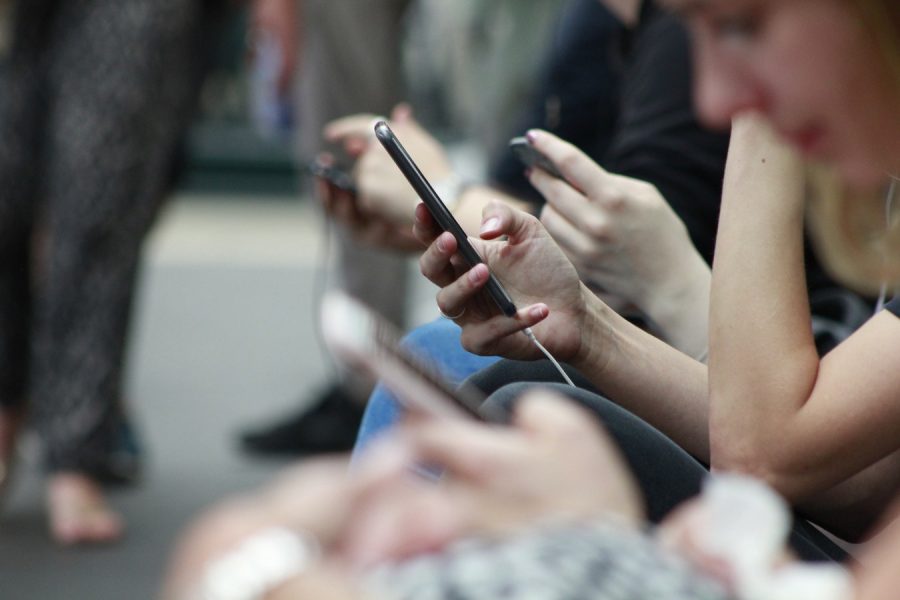Imprisoned By Technology
Image via Robin Warrall/Unsplash
Line of people in the United Kingdom all accompanied by there cellphones in 2017. The average American spends around three hours on their cellular devices daily.
Next time you’re walking across campus pay attention to how many students are glued to their phones, oblivious to the world. Even in places designed for socializing like restaurants and bars you’ll see families and friends giving their full attention to the glowing screen in their hands, only breaking from it to discuss a good meme or some juicy social media gossip.
Our beloved technological gadgets were sold to us as a nice way to wind down at the end of the day and increase productivity at work, but nowadays they seem to be engorging more and more of our lives.
The Journal of Behavioral Addictions found that 60 percent of college students in the United States would say that they have a cell phone addiction.
According to the Trends In Consumer Mobility Report 54 percent of young adults check their smartphone constantly and 44 percent of all people say they never disconnect, even while on vacation.
Not only do our devices suck up our time, they’re also changing our brains.
Microsoft also claims that human attention spans had dropped from 12 seconds in 2000, all the way down to 8 seconds in 2013. Meaning that since the adoption of cell phones and social media, humans now have a shorter attention span than goldfish. Keep in mind that this was in 2013 when smartphones and social media weren’t nearly as ubiquitous and all-encompassing as they are now.
These devices were meant to be a luxury, but have started to warp our reality. We live in a constant state of stimulation, always anxiously waiting for approval from our peers or anticipating a stressful work email at any hour.
We’ve been imprisoned by our technology.

Jaymes Grundmann is a second year ACC and Editor-in-Chief of the Arapahoe Pinnacle. He’s a musician who’s been featured on 11 albums and has been playing shows across the country with his band Short Fuse 59. He’s also deeply...








Jason Momoa • Jan 10, 2022 at 8:28 am
A key component to all behaviors is choice and if a person chooses to be glued to their phone while walking across campus for whatever reason, ( the are dressed in mismatched socks and lack the confidence to engage with their peers) or look up conversation topics at dinner while they dine out for the first time with the parents of their new boyfriend who haven’t accept homosexual relationship’s yet. Each part of individuals choices is their own don’t let it be a prison for them just cause it is for you